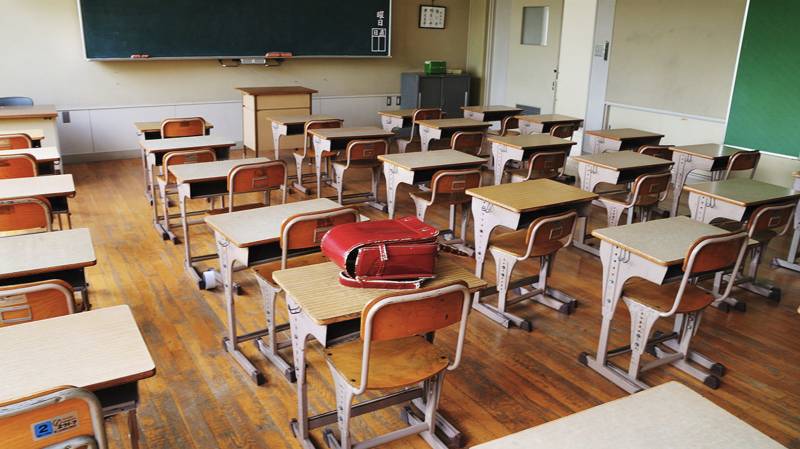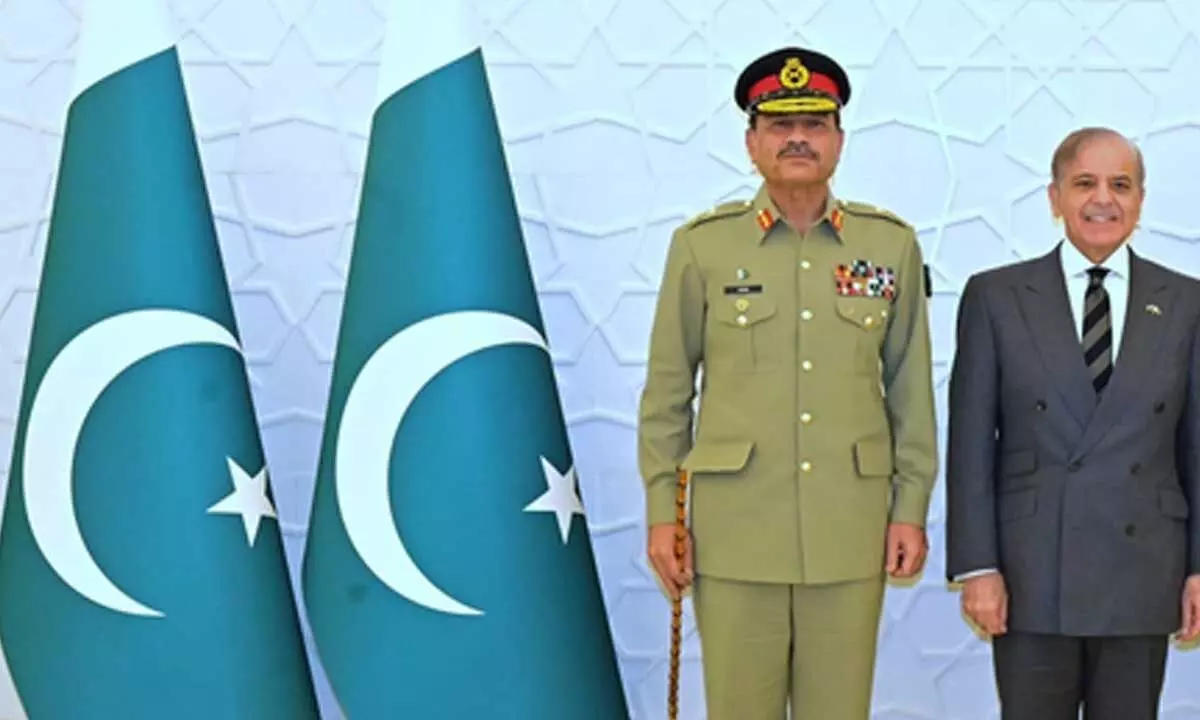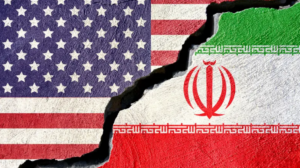
Pakistan’s education system treats students as passive vessels and omits civic education from the curriculum entirely. We need reform that places a strong emphasis on teaching social responsibility.
Education is often seen as the key to solving many of the world’s problems, from poverty and inequality to social and economic development. In Pakistan, however, the state of education has long been a contentious issue, and it can be argued that the education system itself is not part of the solution, but rather part of the problem. Despite efforts to improve education in the country, Pakistan continues to face numerous challenges in this sector.
In the realm of televised debates and general discourse, a recurring notion asserts that Pakistan’s persistent underdevelopment is a direct result of its insufficient education. I have consistently contended, however, that the causality is quite the opposite. It is, in fact, the nature of the education bestowed upon our youth that has perpetuated intellectual stagnation and cultural retrogression.
The primary objective of education should inherently be the cultivation of open, inquisitive minds, fostering the capacity for critical thinking. Unfortunately, our current educational paradigm treats students as passive vessels, tasked merely with the rote memorization of prescribed facts and information. Regrettably, they are seldom encouraged to question the origins and validity of the knowledge imparted to them.
A critical omission within our educational framework is the absence of civic education. Our system inadequately equips our youth with the essential knowledge of how to conduct themselves and cultivate the right attitudes in various situations. This deficiency is a grave oversight in a society where social conduct, ethics, and interpersonal skills are as crucial as academic prowess.
A critical omission within our educational framework is the absence of civic education. Our system inadequately equips our youth with the essential knowledge of how to conduct themselves and cultivate the right attitudes in various situations.
One might naturally expect that an educated individual would exhibit a refined sense of etiquette and manners. However, this expectation often contrasts starkly with the reality observed within the educated class in Pakistan. Merely attempting to engage with someone who has inconsiderately parked their car, politely requesting another individual to lower their voice in an upscale café, or witnessing someone brazenly cut in line can reveal their propensity to justify their actions, even when they are in the wrong, often leaving you feeling remorseful for attempting to uphold decorum. Perhaps the most glaring illustration of this phenomenon occurs when observing individuals behaving improperly at the dining tables of five-star hotels, leading one to question the efficacy of their education in shaping their behavior.
Education should ideally instill humility and foster understanding. However, in our context, the more educated individuals we encounter, the more they tend to exhibit uncivilized behavior and arrogance. Astonishingly, it is not the impoverished and uneducated segments of our society that are responsible for the plunder of Pakistan; rather, it is the highly educated elite that has systematically looted this nation, wreaking havoc upon its social fabric.
It is a disheartening paradox that the acquisition of knowledge and academic achievement does not necessarily translate into enlightened conduct and a sense of responsibility. In Pakistan’s case, we witness an unfortunate trend where individuals with extensive educational backgrounds often display an utter lack of humility and an alarming penchant for arrogance.
The consequences of this disconcerting phenomenon are palpable throughout the nation. The very individuals who are expected to serve as role models and champions of ethical behavior often indulge in corrupt practices and unethical behavior. They manipulate the levers of power to amass wealth and influence, at the expense of the country’s development and its people’s welfare.
This stark contrast between the ideal role of education as a tool for personal and societal betterment and its actual manifestation in our society is a critical issue that cannot be overlooked. To address this problem, it is imperative that our education system not only imparts knowledge but also places a strong emphasis on values, ethics, and social responsibility. Only then can we hope to see a transformation in the behavior of the educated elite and, subsequently, a positive impact on the overall social fabric and progress of Pakistan.
In Pakistan’s case, we witness an unfortunate trend where individuals with extensive educational backgrounds often display an utter lack of humility and an alarming penchant for arrogance.
Another critical concern that warrants thorough examination is the pervasive infusion of religion into every facet of our education system. Surprisingly, even disciplines as empirical as the physical sciences do not remain immune to an excessive dose of religiosity. This unfettered amalgamation of religion and education inevitably cedes undue influence to individuals who may possess religious authority but lack alignment with the principles of modern education and critical thinking.The Growing Problem Of E-waste As A Hazard To Human Life
The integration of religion into education can have profound implications for a society striving to keep pace with global advancements. While it is essential to appreciate the cultural and historical significance of religion, its overemphasis within educational contexts can stifle intellectual exploration and diversity of thought. This becomes particularly problematic when it veers away from fostering a spirit of inquiry and instead leans towards dogmatism.
By allowing religious figures with limited or no exposure to modern educational paradigms to wield significant influence over educational content, we risk curtailing the intellectual evolution of our society. It can hinder the development of a generation equipped with the critical thinking skills required to navigate complex, diverse, and rapidly changing global landscapes.
A more balanced approach, one that respects the significance of religious values while safeguarding the principles of secular, open-minded education, is essential. By achieving this equilibrium, we can create an education system that encourages free thought, embraces diversity, and prepares individuals to thrive in the modern world while respecting their cultural and religious heritage.
Our current education system does a disservice to our children. It not only fails to cultivate their potential as proficient individuals in their chosen fields but, more alarmingly, it falls short of instilling the fundamental qualities of being good human beings.
The education system in Pakistan is heavily skewed towards theoretical learning, neglecting vocational and technical education. This results in a surplus of degree holders with limited practical skills, leading to unemployment and underemployment among educated youth.
Our current education system does a disservice to our children. It not only fails to cultivate their potential as proficient individuals in their chosen fields but, more alarmingly, it falls short of instilling the fundamental qualities of being good human beings. Consequently, I propose a bold solution: imposing a 15-year moratorium on our existing education system. During this hiatus, our focus should shift towards providing vocational training, supplemented with essential English language skills, a basic foundation in general science, and mathematics. Imran Says Arrest Part of London Plan
The rationale behind this proposition is to break free from the cycle of an education system that, in its current state, appears to be more detrimental than beneficial. By shelving the traditional academic curriculum for a period of 15 years, we can redirect our efforts towards nurturing practical skills and knowledge that will be more immediately applicable in the real world.
This revamped approach would entail a strong vocational component, equipping students with the practical expertise needed for a wide range of professions. Simultaneously, the emphasis on basic English, science, and math would ensure that our youth remain competitive and adaptable in an increasingly interconnected global landscape.
Perhaps the most crucial aspect of this reformation would be the integration of robust work ethics into the curriculum. The values of hard work, integrity, and the rejection of shortcuts should be woven into the very fabric of this educational journey. By instilling these principles, we can create a generation of individuals who not only excel in their chosen vocations but also contribute positively to society as responsible, ethical citizens.






